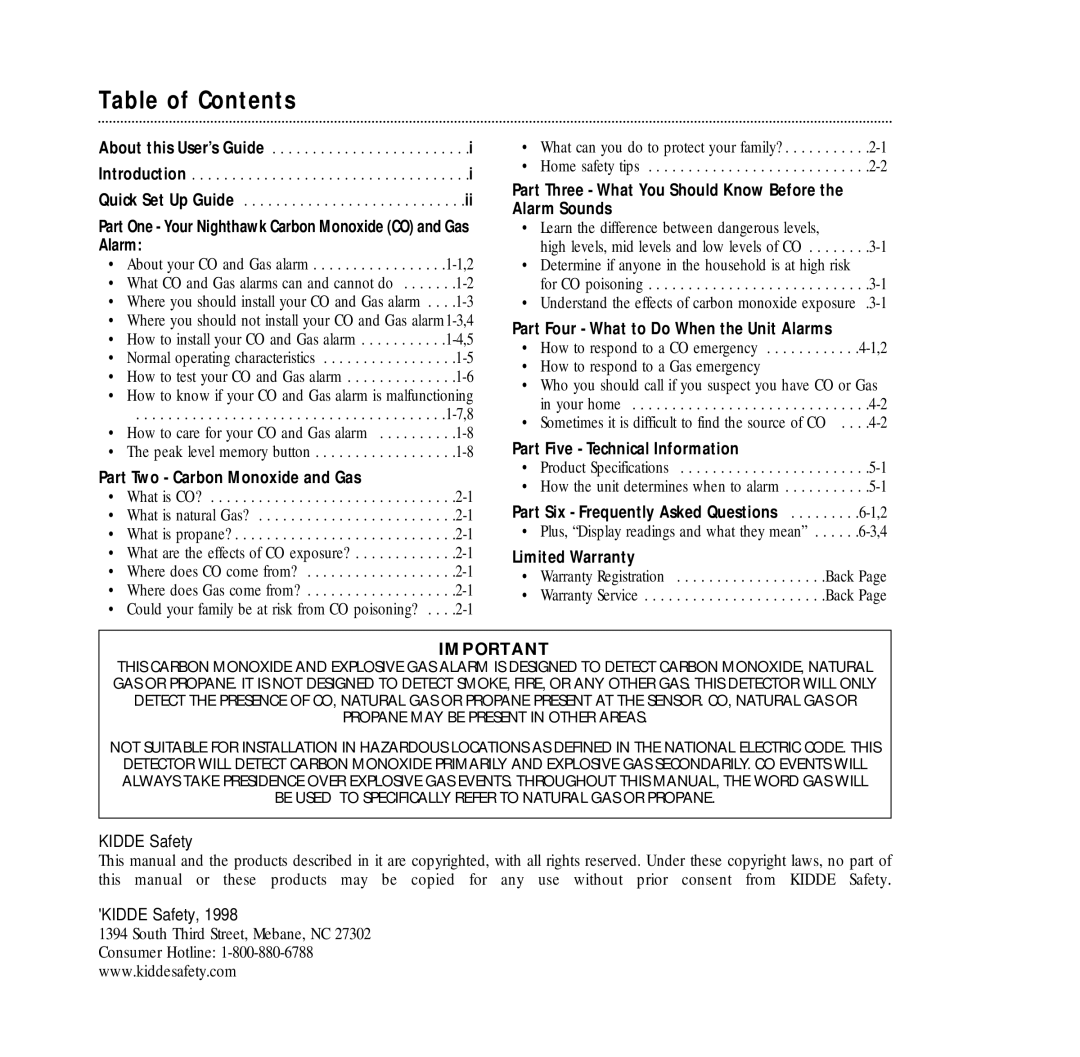KN-COEG-3 specifications
The Nighthawk KN-COEG-3 is a state-of-the-art carbon monoxide and explosive gas detector designed to offer paramount safety for homes and workplaces. With its sleek design and advanced technology, this device stands out in the market for its reliability and ease of use. One of the most striking features of the KN-COEG-3 is its dual-function capability, allowing it to detect both carbon monoxide (CO) emitted from sources like gas appliances and vehicles and explosive gases such as natural gas and propane. This dual detection provides an added layer of safety, ensuring that you are alerted to potential dangers in real time.The device is equipped with a highly sensitive electrochemical sensor for carbon monoxide detection, which offers precise readings and minimizes false alarms. The explosive gas sensor utilizes a catalytic bead technology, which allows for quick identification of dangerous gas leaks. Together, these technologies ensure that you are protected from two of the most serious gas-related hazards.
Another key feature of the Nighthawk KN-COEG-3 is its user-friendly interface. The device includes a well-designed LCD display that provides clear, easy-to-read information regarding the levels of carbon monoxide and explosive gases detected in the air. It also features a loud alarm system that activates immediately upon detection of dangerous levels, ensuring that occupants can promptly respond to evacuation protocols.
The KN-COEG-3 boasts a compact and stylish design, making it easy to install in various locations, whether mounted on a wall or placed on a countertop. It is powered by an AC adapter with a battery backup, which guarantees continuous operation even in the event of a power outage. This reliability ensures peace of mind for users, whether they are at home or away.
Additionally, the device incorporates advanced self-test features that allow it to periodically check its sensor and system functionality, assuring users of its operational integrity. By coupling advanced technology with a commitment to user safety, the Nighthawk KN-COEG-3 presents a compelling solution for anyone looking to enhance their safety against carbon monoxide and explosive gas hazards in their environment.

